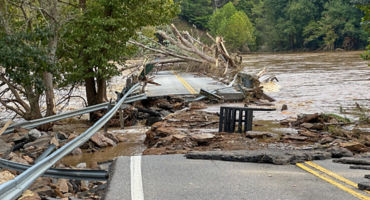Skip to main content
- Funds
- Insights
- Capabilities
- About Us
- My Account
Our Funds
Fund Documents
Global Multi-Strategy Fund
Wellington Management and CalPERS launch innovative framework to help executive teams better evaluate physical risks of climate change — new P-ROCC (physical risks of climate change) framework aims to facilitate more informed investment decisions through enhanced corporate disclosures
Boston, MA, September 9, 2019 – Wellington Management Company LLP (“Wellington”), the California Public Employees’ Retirement System (“CalPERS”) today announced the launch of a new framework designed to help companies and their executive teams assess and disclose the potential effects of the physical risks of climate change (P-ROCC) on their business. This new P-ROCC framework seeks to improve how companies disclose their physical vulnerabilities, and thereby help asset owners and investment managers better evaluate the ability of the companies they invest in to adapt to or mitigate such risks. For the purposes of the P-ROCC framework, Wellington and CalPERS define physical risks as inclusive of but not limited to extreme heat, drought, wildfires, hurricanes, flooding, and water access.
The development of this framework is the direct result of the collaborative initiative announced in September 2018, which outlined Wellington, CalPERS, and Woods Hole Research Center’s intentions to generate research aimed at connecting the impact of climate change to capital markets. This framework is meant to aid companies in their disclosure practices, whether those practices be voluntary compliance (like in the case of the Task Force on Climate-related Financial Disclosures-TCFD) or, in a growing number of markets, globally required compliance. In this way, the framework can serve as a helpful guide for management teams to disclose how they identify, measure, and manage their exposures to the physical risks of climate change. An improved understanding and disclosure of physical climate risks can help companies:
Chris J. Goolgasian, Director of Climate Research at Wellington Management, said, “Based on our research, many companies overlook and/or underreport climate-related physical risks that can be material and important to disclose to stakeholders. We believe the P-ROCC framework may help executive teams with their strategic planning and communication around potential climate effects on their business lines.”
Beth Richtman, Managing Investment Director-Sustainable Investments at CalPERS, offers “As a global asset owner with a multi-decade time horizon, we think it is critical for us to understand how our companies are planning to adapt to the physical risks of climate change. Absent this information, we are left to wonder what, if any, steps a company has put in place to prepare for the future. To date, we find financial disclosures have a long way to go in order to provide the type of information that we would find impactful to our investment process.”
About Wellington Management:
Tracing its history to 1928, Wellington Management is one of the world’s largest independent investment management firms, serving as a trusted adviser to over 2,200 institutional and private clients located in more than 60 countries and managing over USD 1 trillion of assets.*
Wellington offers comprehensive investment management capabilities that span nearly all segments of the global capital markets. The firm’s only business is investment management and its mission is to exceed the investment objectives and service expectations of its clients worldwide. Wellington’s solutions draw on a robust body of proprietary research and a collaborative culture that encourages independent thought and healthy debate.
*For Wellington Management group of companies as at 30 June 2019.
About CalPERS For more than eight decades, CalPERS has built retirement and health security for state, school, and public agency members who invest their lifework in public service. Their pension fund serves more than 1.9 million members in the CalPERS retirement system and administers benefits for more than 1.5 million members and their families in their health program, making them the largest defined-benefit public pension in the US. CalPERS’ total fund market value currently stands at approximately $374 billion. For more information, visit www.calpers.ca.gov.

Sustainable commodities: Rethinking investment strategies for a changing climate
As climate change and the energy transition reshape global markets, commodities are gaining renewed attention as inflation hedges and portfolio diversifiers. This article introduces a climate integration framework for evaluating commodity investments through both sustainability and financial lenses.

Investing in climate solutions across public and private markets
Collaboration between public and private market investors can be powerful. Opportunities where expertise and resources can be shared to accelerate innovation and deployment are optimal. Our experts explore how AI, geopolitics, and global policy are reshaping climate solutions across sectors.

Transition at risk: Checking in on corporate decarbonization progress
Corporate climate transitions face ambition-execution gaps. Success requires integrating decarbonization into business strategy, focusing on emissions, pragmatic Scope 3 approaches, transparency, and credible plans. See how our experts are thinking about this.

2024 Climate Report
Aligned with TCFD recommendations, this report describes how we manage climate-related risks and opportunities, engage with companies on climate change, and reduce our own carbon footprint.

Finding climate investment opportunities amid shifting US policy
We delve into the evolving landscape for climate investments in the US and explain areas of overlap between government policy, corporate commercial interests, and climate focus.

Collaboration in practice: Climate venture capital
Greg Wasserman, Head of Private Climate Investing, highlights the importance of collaborating with Wellington’s later-stage private market investors and public market experts to better understand best practices, valuation, exit opportunities, and more.

Climate venture capital: Innovation versus hype
Greg Wasserman, Head of Private Climate Investing, discusses the balance between innovation and hype in climate venture capital. He explores automation in agriculture and manufacturing as well as the emerging commercial applications of generative AI.

2024 Sustainability Report
We appreciate the opportunity to share our approach to advancing sustainable practices across our investment, client, and infrastructure platforms.

Climate venture capital: Deployment, valuations, exits
Greg Wasserman, head of private climate investing, explores today’s normalizing valuations, encouraging IPO and M&A trends, and potentially actionable opportunities in climate venture capital.

Geopolitics in 2025: Risks, opportunities, and deepening uncertainties
Geopolitical Strategist Thomas Mucha outlines his structural, policy, and geopolitical outlook for the year.

Climate adaptation may cost trillions. Is your portfolio ready?
With climate adaptation and resilience spending projected to exceed mitigation spending sixfold by 2050, we believe investors should consider allocations to adaptation-aligned opportunities.
URL References
Related Insights